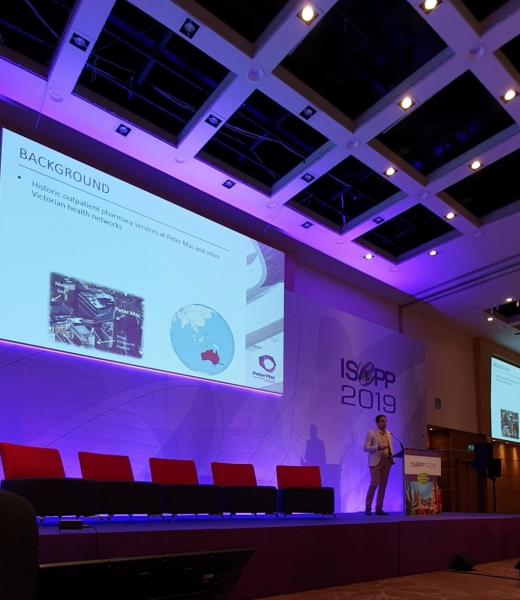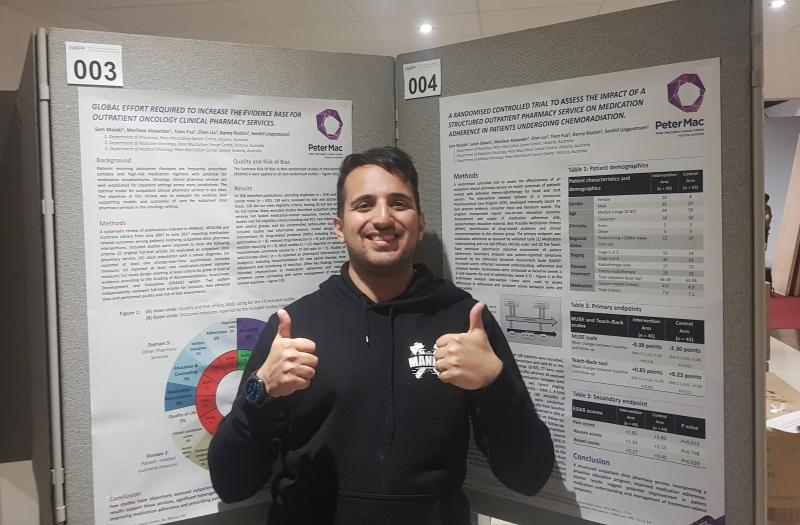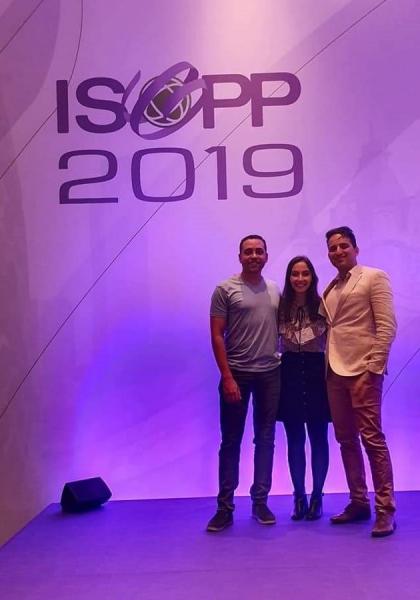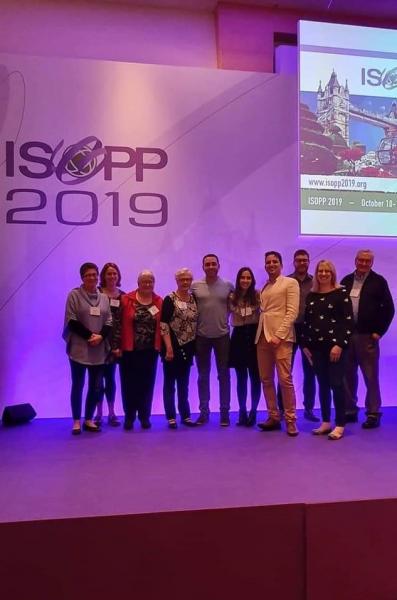By Sam Maleki, Peter MacCallum Cancer Centre, Australia
I am clinical pharmacist working at the Peter MacCallum Cancer Centre, Victoria, Australia. Through the past few years I have taken on several diverse roles at the Peter Mac, including running an outpatient radiotherapy clinic and conducting a large randomised controlled trial to assess the effectiveness of pharmacy services for our patients. Recently, I practiced as the lead perioperative pharmacist where I oversaw the operation of theatres and perioperative services at Peter Mac. I also work on the inpatient wards providing clinical pharmacy services to hospital inpatients. These include the haematology wards and the medical and surgical oncology units. I have a large interest in practice-based research and have published numerous articles both locally in Australia and internationally in renowned journals.
I attended the 2019 ISOPP symposium in London for the purposes of (A) presenting my research work in radiotherapy clinics but also (B) to gain an understating of pharmacy practices in U.K. and hear from practitioners from across the world.
Overall, I found this symposium to be very well organised. This in part should be accredited to BOPA for their support and contributions to the development of the program. The symposium was well organised with many emails detailing the program in advance as well as promoting social activities, such as a fun run and a river cruise. These were aimed at increasing the socialising and collaboration between participants, networking and helping to create new links between people from across the world. The conference app was particularly useful, providing an easy way to navigate the details of the program, with conference maps and a snapshot of platform presentations available at a glance.
The program had a strong core clinical structure and many advances in medicine were discussed by renowned researchers and field experts. The program also included the works of many local hospitals and their current services which is what I was most interested about. Other components of the symposium included visions of the future and how our services must develop to meet these needs.
On a personal level I engaged with many attendees and discussed their experience of the program and asked about the pharmacy services at their local health centres where they practiced. During one conversation with an experienced pharmacist working in a very poor country, I learned a lot about the impact of finance on the procurement power of life-saving chemotherapy, particularly immunotherapy. These life-saving therapies are rarely available in poor countries and it’s heartbreaking to hear many stories from the staff and their patients.
Overall, I understood that our pharmacy practice in Australia and particularly at Peter Mac is on par with the best practices from around the world and we certainly meet the minimum standards across all fields. It is also easy to notice that here in Australia and Peter Mac we go beyond the minimum standard and provide other auxiliary services to our cancer patients such as our showcased radiotherapy clinics and how we have managed to improve patient care and outcomes here.
It was very interesting to note that there are many anticipated challenges in the future which Australian pharmacists must prepare for. In particular the rapid rise of digital technology and how we can use this technology to improve patient medication adherence and discover new innovative ways to go beyond the standard and historical way of delivering pharmacy services.
Of high relevance to our practice in Peter Mac, were numerous discussions surrounding diabetes in cancer patients which were in line with our existing GID program at Peter Mac. It was interesting to see that practitioners across the world had also recognised this as a huge problem and everyone had attempted to solve the problem or provide a new services and they all approached the matter differently. Whilst the GID platform presentation by Antoine Sedrak and Poster by Sarah Glewis outlines our services at Peter Mac, other platform presentations, particularly, by Dr. Islam Elkonaissi showed a completely different aspect of the matter. Dr Elkonaissi is a specialist pharmacist who works at the Royal Marsden NHS Foundation Trust, London, UK. He is an authorised prescriber with varying levels of expertise, including pharmacist prescribing which allows him to seamlessly see patients and optimise their cancer therapy. At the same time Islam has become worried about the steroid induced diabetes in his patient population. His study “Risk assessment of hyperglycaemia induced by steroid use for immunotherapy toxicity in non-small cell lung cancer (NSCLC) patients” showcased how the destruction of beta cells by immune checkpoint inhibitors as well as steroids can result in severe hyperglycaemia resulting in poor cancer prognosis and reduced quality of life. His study identified other at risk patient populations and this is something that can be linked with our existing GIP practices at Peter Mac.
Another unique practice based innovation, was the development of a “training passport” for oncology pharmacists. The passport was carefully constructed by a large group of field experts and can be easily applied across the U.K. local precincts to reliably train staff at a consistent level, well meeting all relevant clinical standards. At the end of this talk I raised the question about the ongoing maintenance of the program and the costs associated with it. The question was acknowledged as a tough one and the presenter said that she was aware of this issue with ongoing updating of the passports posing a significant requirement for manpower and high cost needed to do so.
In conclusion, I believe the ISOPP 2019 was a very well organised event with kudos to both the ISOPP task-force and BOPA for great organisation and execution. The primary take away message was to increase our patient-centred focus in delivering health-care. At Peter Mac, this is something that has always been a primary focus for us, however, moving forward we need to be vigilant to further adjust our services to better match the needs of our patients. With the digitalised world at the doors and the fast pace of clinical improvements in the cancer field, we must ensure we are suitably ready to further optimise cancer treatment.
 |
 |
| Sam Maleki is presenting at ISOPP 2019 | Sam Maleki at ISOPP 2019 Poster Exhibition |
 |
 |
| ISOPP 2019 Attendees | ISOPP 2019 Attendees |
